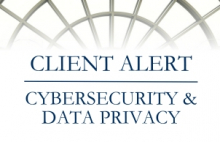Public Access to Electronic Court Records in Missouri
April 13, 2021Courts have long made their proceedings and records open to the public in the vast majority of cases. Traditionally, however, accessing such information would entail visiting the court that houses the records.
Missouri has been in the forefront of making public court records accessible over the internet. Through the CaseNet system, the public can obtain limited information about most court cases, including docket entries, parties, judgments, and criminal charges.
One limitation of CaseNet is that it does not permit remote access to the actual documents filed with the courts. Missouri has permitted registered attorneys to have such access, not only to cases in which they are directly involved, but to any case that would be open to the public if a member went to the courthouse and asked to see the court file. Such access has not been afforded the public or the press, which remain relegated to visiting the courthouse during courthouse hours and viewing the records on court-provided computer monitors. In many instances, if they want copies, they must pay a fee and wait until a clerk has time to make copies. This imposes upon them a burden and expense not required of attorneys who can see such records on their computer or handheld device and make copies on their printer.
Last November, the Missouri Supreme Court issued an Order amending its Court Operating Rules (COR) 2.02, 2.03, and 2.04 to begin a process where the public and press eventually might have remote access to court records that would be available for public inspection at the courthouse. Though a work in process, these amendments represent a step toward greater public access to court records—something the Supreme Court and the Missouri Office of State Courts Administration (OSCA) have been pursuing for years.
Backgound
For several years, the Missouri Press Association and other media entities have sought for themselves and the public generally, internet access to Missouri court filings similar to that available to Missouri attorneys. In October 2014, these entities petitioned the Missouri Supreme Court seeking remote access, but this Petition was rejected. In March 2015, the Honorable Paul C. Wilson, Judge of the Missouri Supreme Court, sent a letter to the Missouri Court Automation Committee requesting it to consider enhanced public access. That letter resulted in the formation of the Missouri e-Access Working Group on Public Access and Privacy, which in 2016 issued its Report and Recommendations. In its Report, the Committee recommended a “phased-in” process for public access. At the same time, “separate and apart” from the “phased-in” access to the public, the Report recommended permitting remote access on a “read-only” basis to media entities to the same extent as provided at the courthouse, subject to reasonable controls. According to the Report, despite the delay in public access, by permitting remote access to the media as intermediary, the goal of enhancing public access would be advanced while avoiding concerns over undue stress on the system. At least one Missouri neighbor has undertaken such an intermediate plan. In late 2016 or early 2017, Iowa began permitting journalists remote access, providing they refrain from data mining and agree not to disclose information that is confidential under the rules and to notify the court administrator if they find any confidential information in the filings they access.
A report entitled “Remote Public Access to Electronic Court Records” at 7, prepared by the Council for Court Excellence (2007) and referred to as the CCI Report, remarked that an internet-based public system for viewing court filings is both feasible and desirable because it (1) helps to ensure the perception that the proceedings are fair; (2) fosters public awareness regarding the legal system; and (3) promotes public oversight and monitoring of the legal system. For many years, federal courts, through the PACER system, have permitted public internet access to almost all court filings for a per page fee. The CCI Report indicates that 16 of 21 states surveyed reported that court filings are remotely accessible to the public over the internet. The systems of six of those states are operated by third-party contractors and entail a fee, but the other 10 are operated by the state and do not entail a fee.
In 2017, in her State of the Judiciary address to the Missouri General Assembly, then-Chief Justice Breckenridge stated,
The Missouri Court Automation Committee has recommended the judiciary allow remote access, but expansion of public access to case records can be done only if the security and reliability of the courts’ essential operations can be guaranteed. And such expansion of the system will require more maintenance, the courts and legislature may need to consider means such as subscription fees or pay-per-view charges like those assessed by federal courts.
The Rule Changes
The amended Court Operating Rules call for what the Missouri Supreme Court refers to as “Expanded Remote Access” to occur no less than six months after the Court establishes an “Expanded Remote Access Implementation Date,” which the Court has not set yet (COR 2.03(m)). After that date, the “public”—defined as any person, business or non-profit entity, government agency, media organization, and entities that “gather an disseminate information for whatever reason,” including for profit (COR 2.03(j))—shall have remote access to “[a]ll public documents filed on or after [that date] that are available at a public access terminal … on a schedule approved by the Missouri Court Automation Committee” (COR 2.04(d)). Such remote access, however, will not be available where prohibited by court order in a particular case, by statute, or by court rule. Further, it may be temporarily suspended by the State Courts Administrator if it is determined that public demand “adversely impacts in any manner the statewide court automation system or court operations”—a provision seemingly designed to prevent situations where demand overburdens the system.
In order to avoid unwarranted disclosures of private information after the Expanded Remote Access Implementation Date, attorneys will be required to redact “personal information” and to certify compliance with any redaction requirements through an automated process that will be implemented as part of the electronic filing system (COR 2.02(b)). Redacted information must be referenced by generic description in the redacted document, and it must be provided to the court and parties in a “redacted information filing sheet” within 10 days of the redacted document's being accepted by the court (COR 2.02(a)).
If you have questions about public access to electronic court records in Missouri, please reach out to Joe Martineau.








